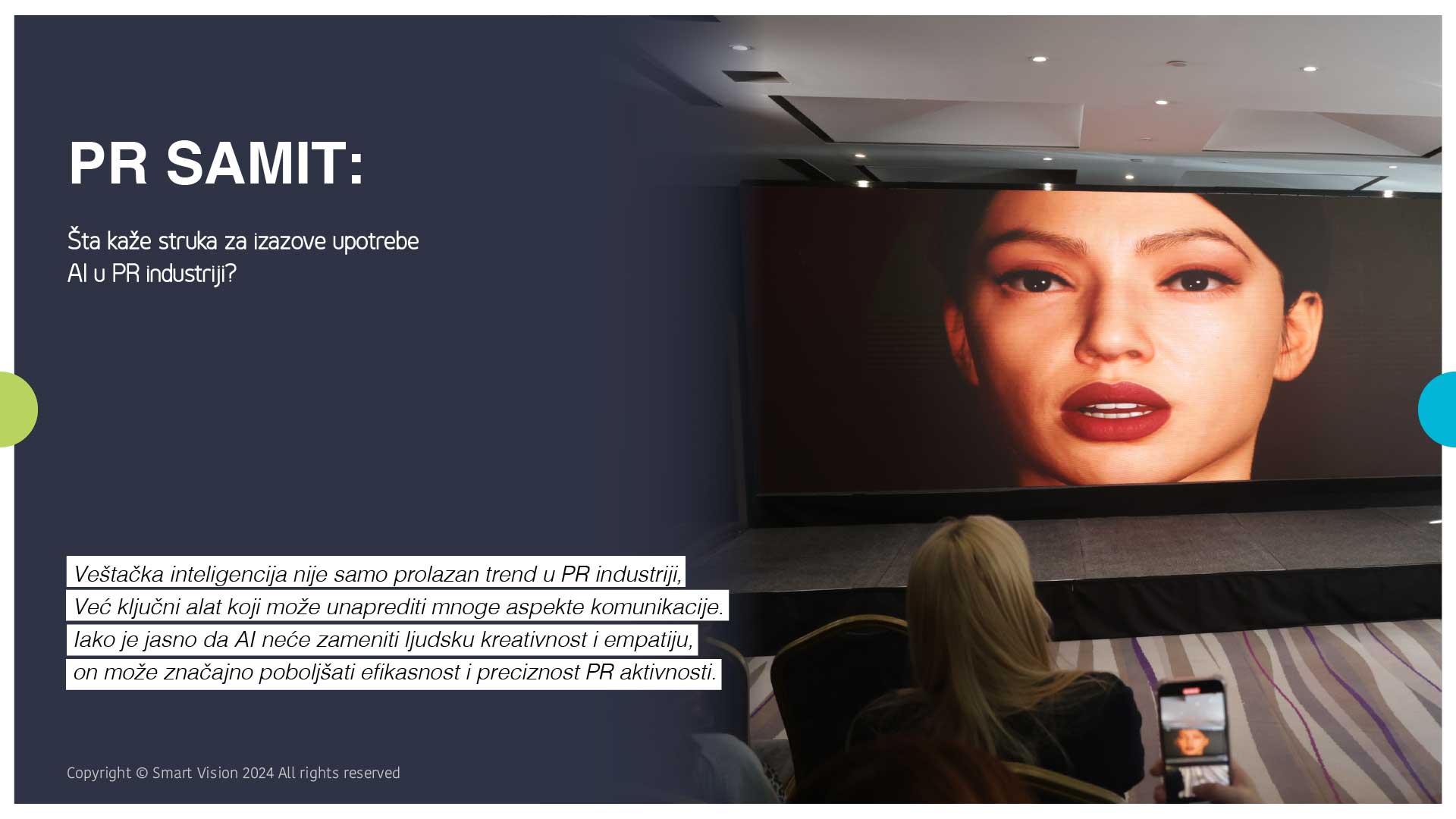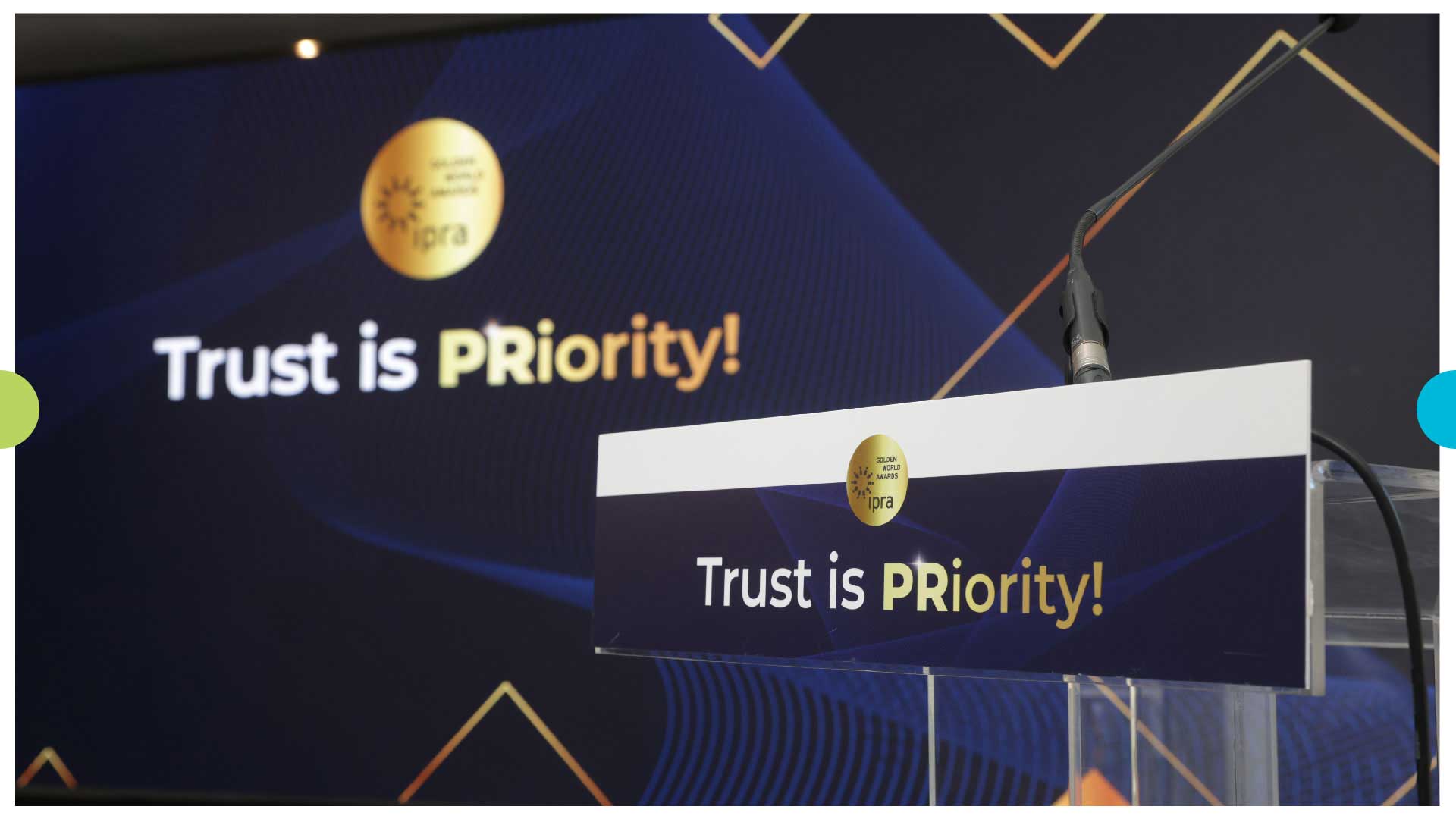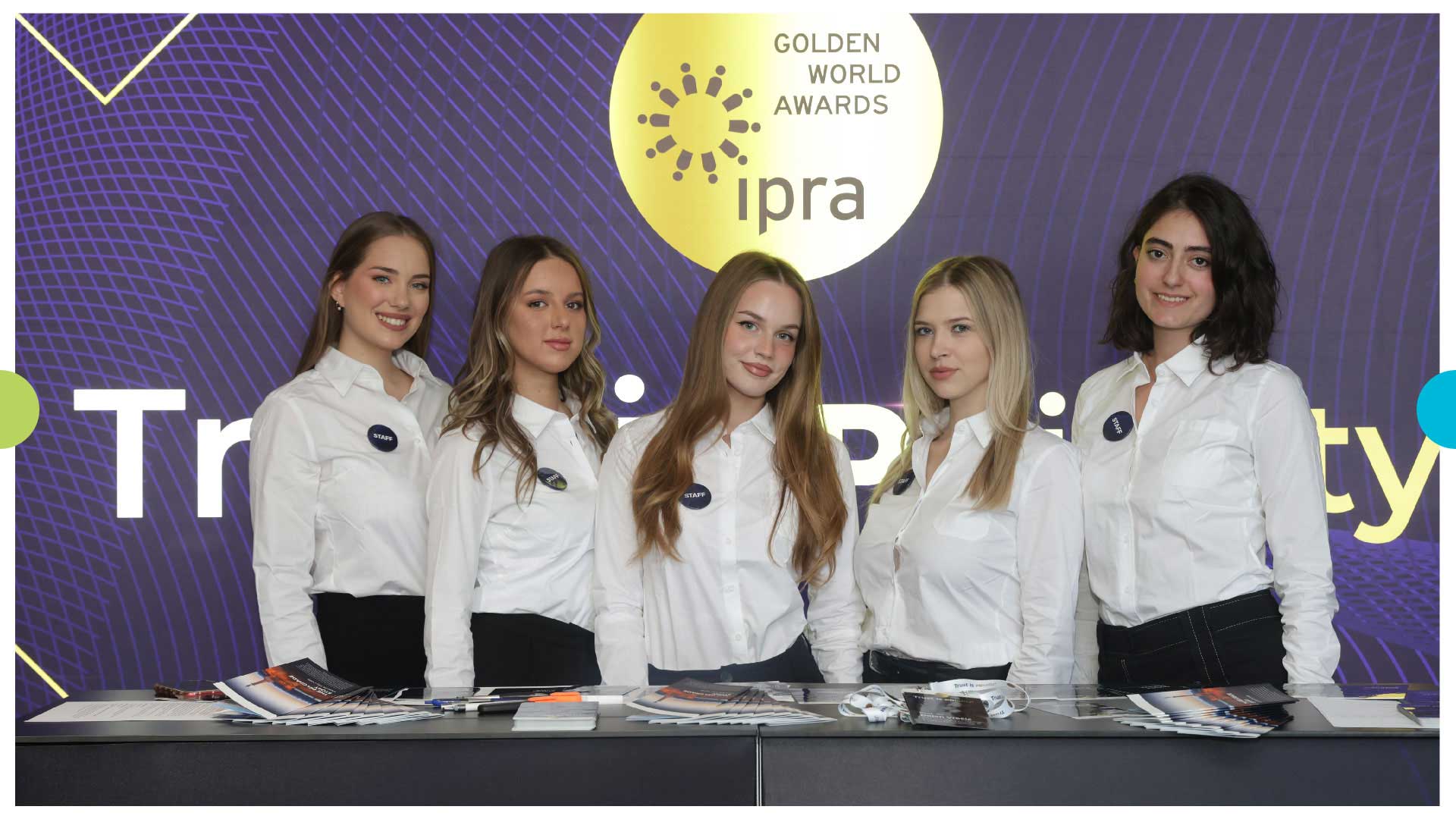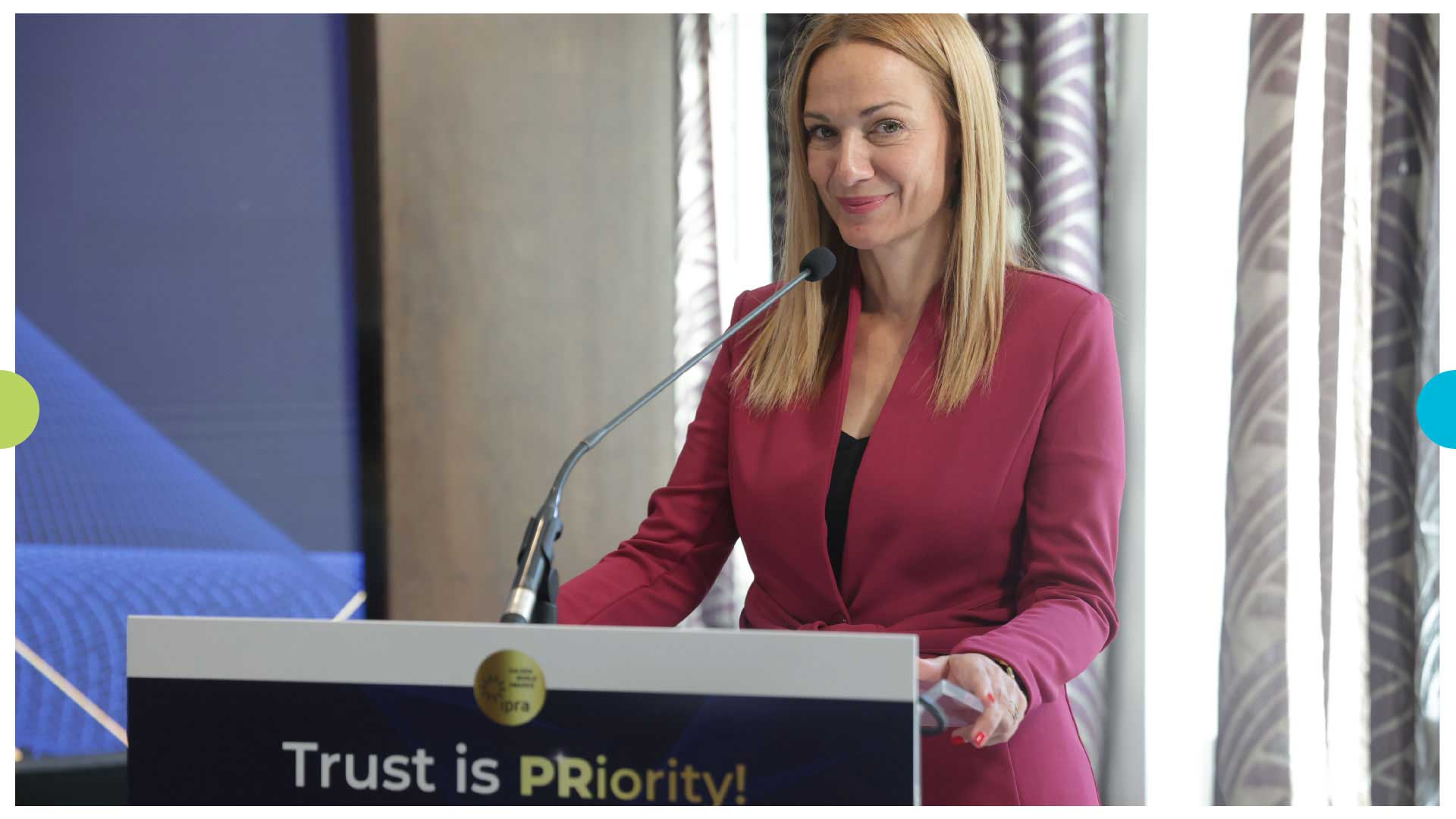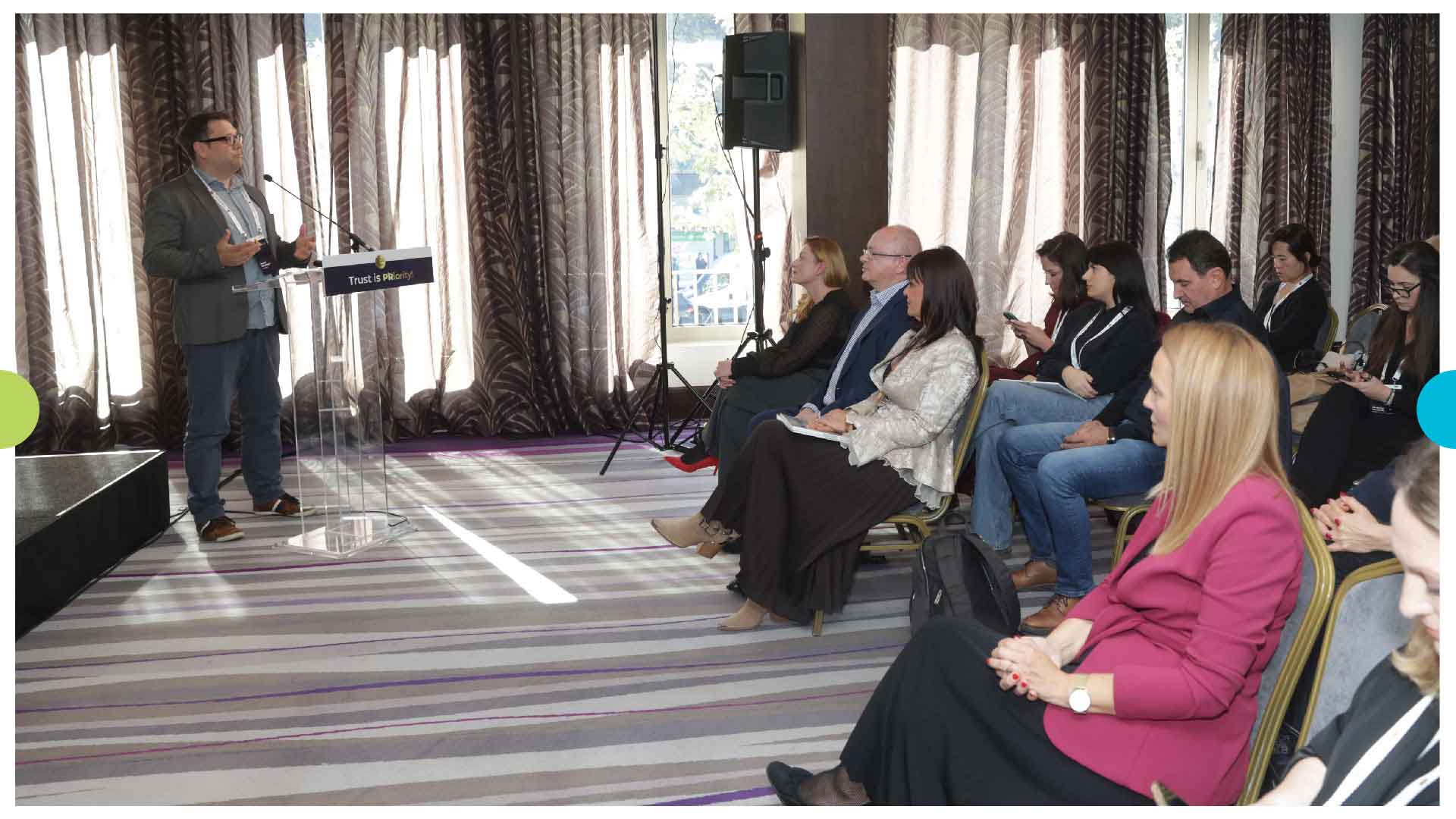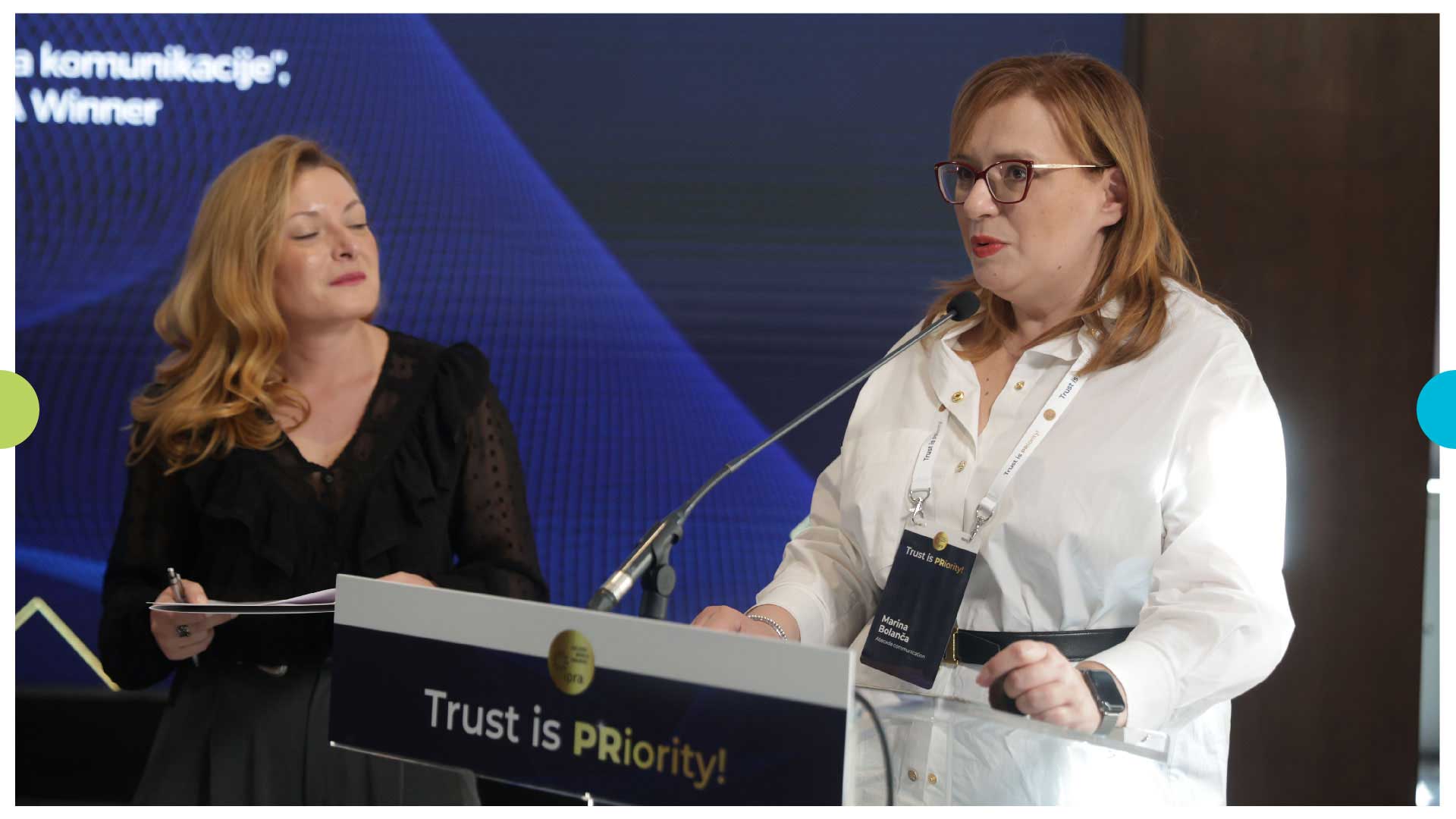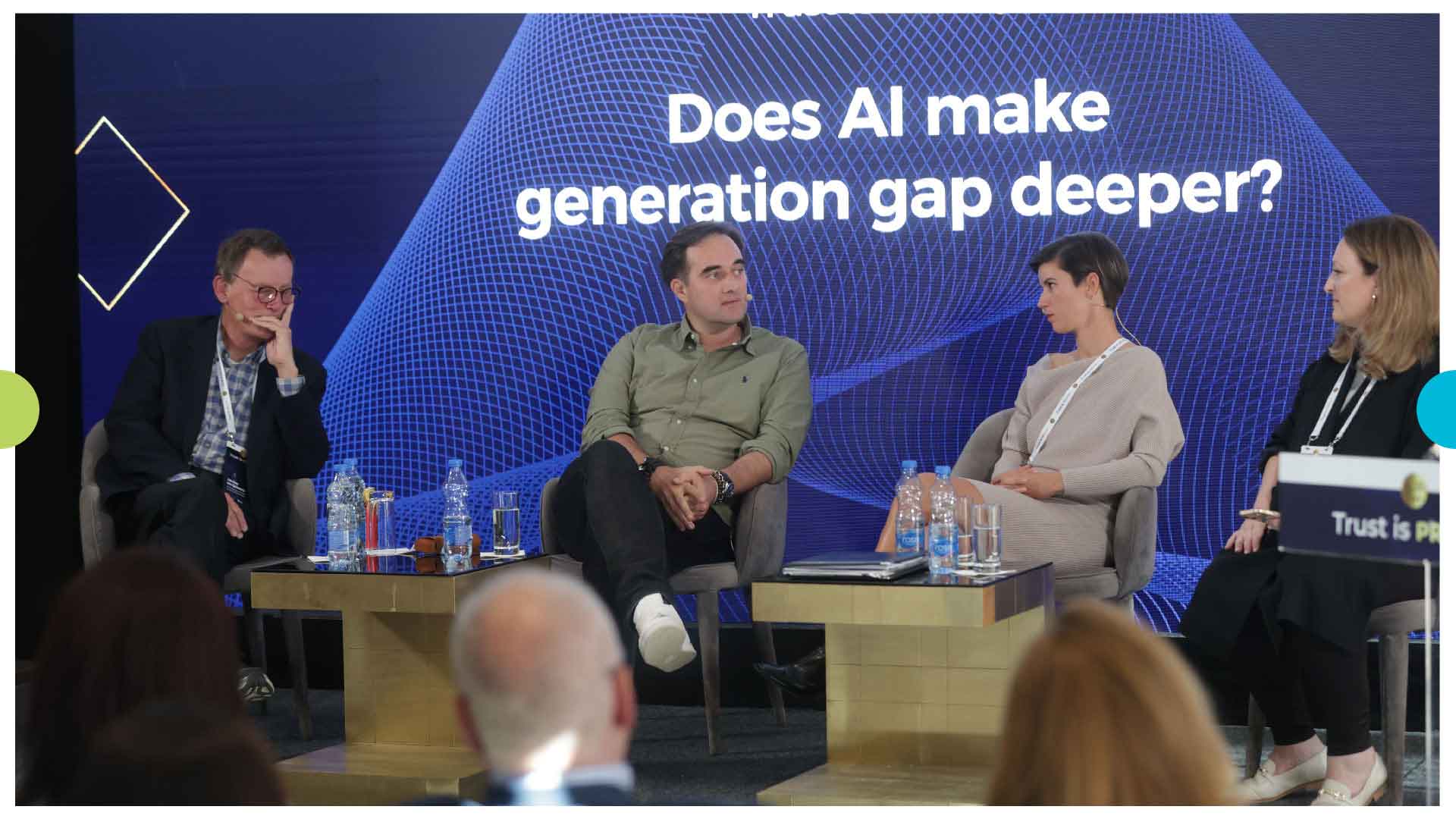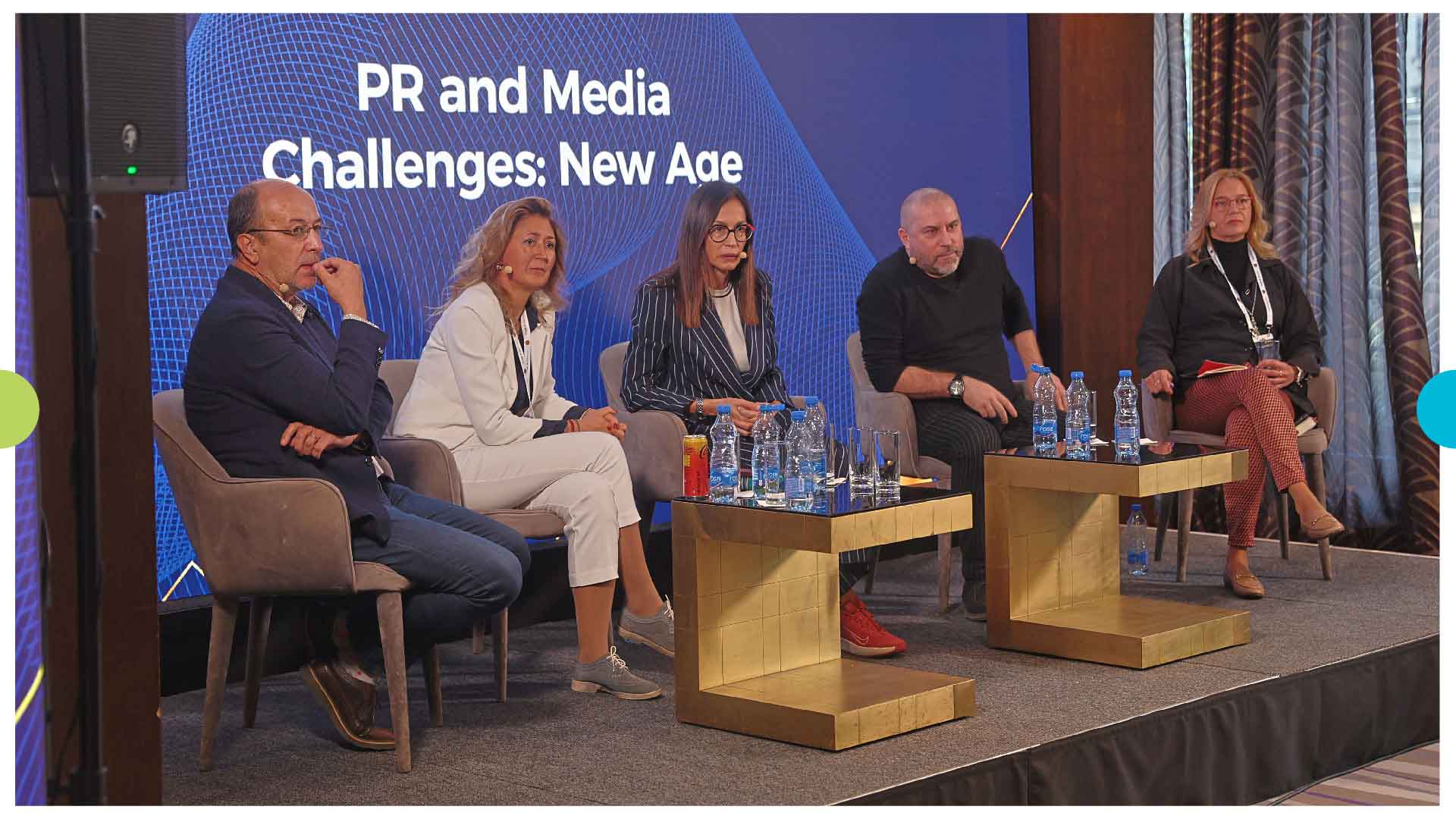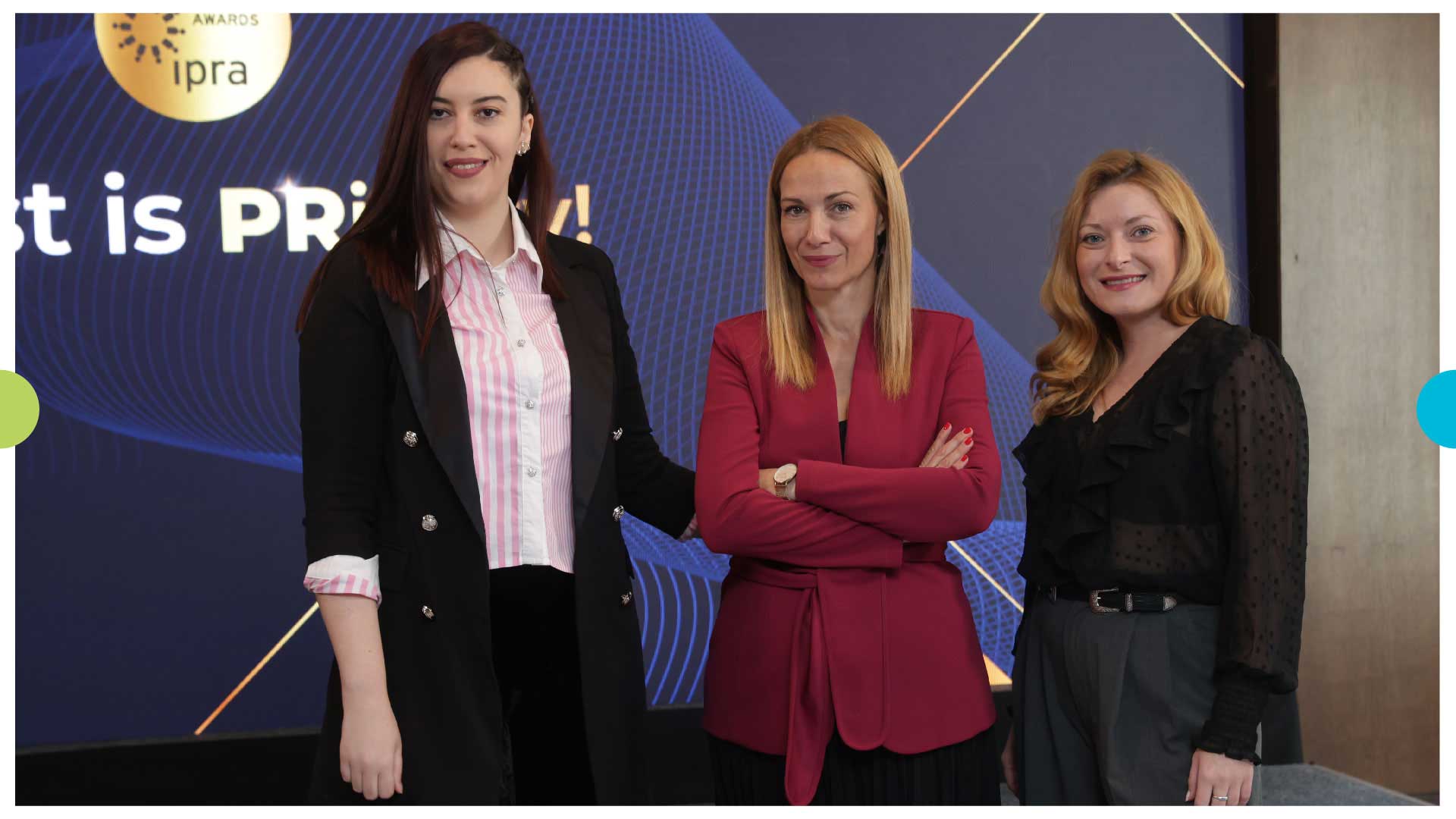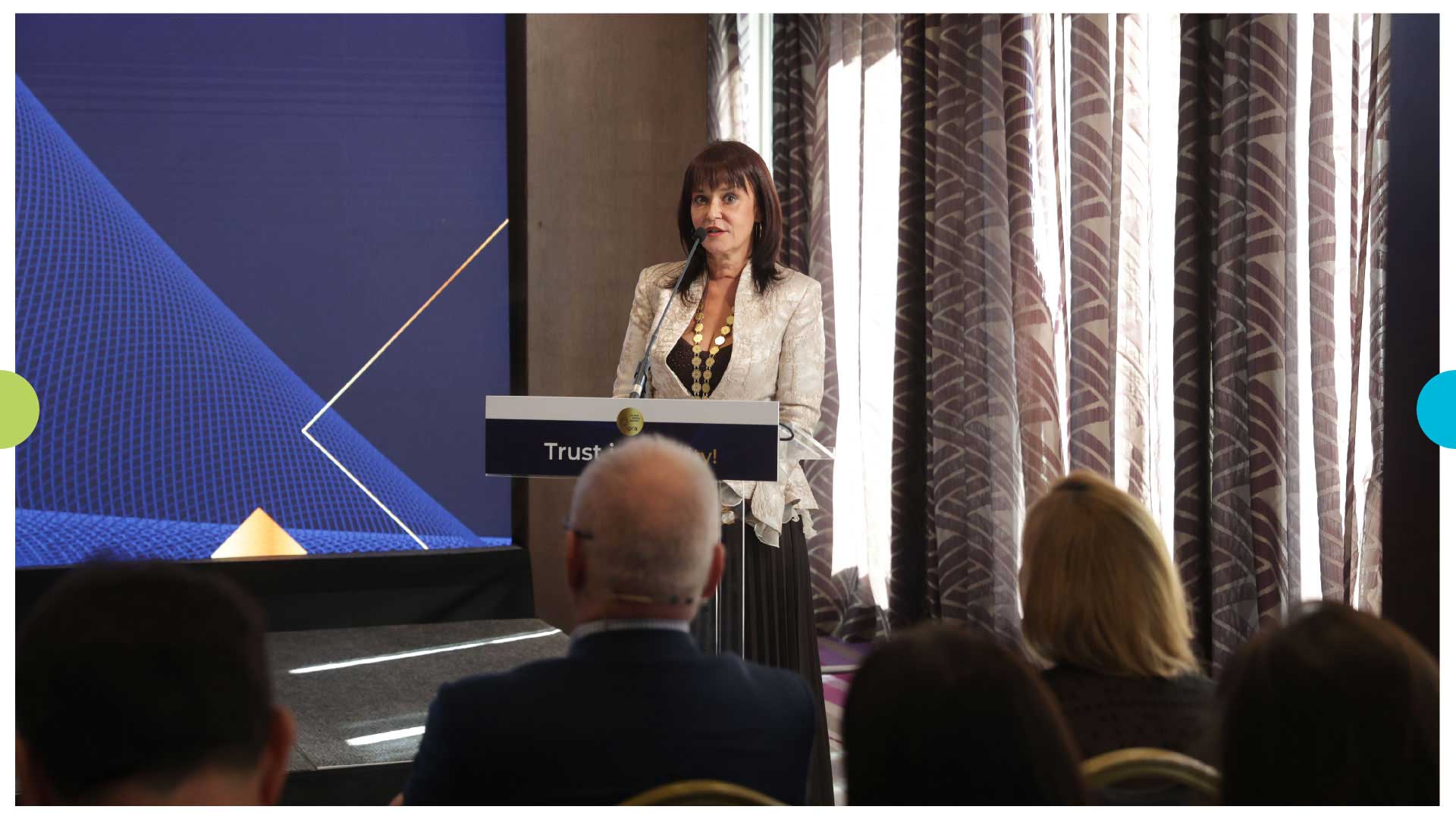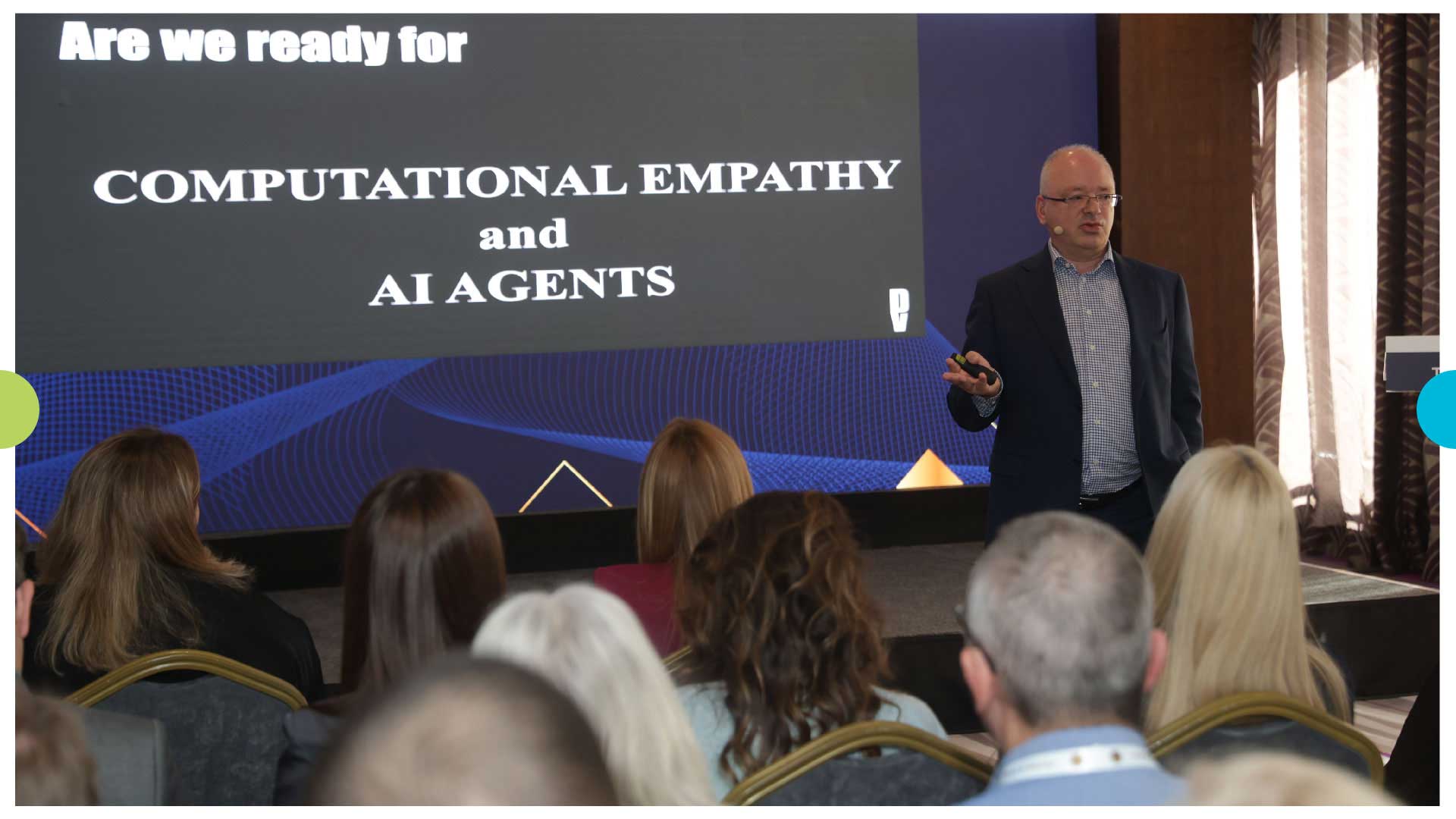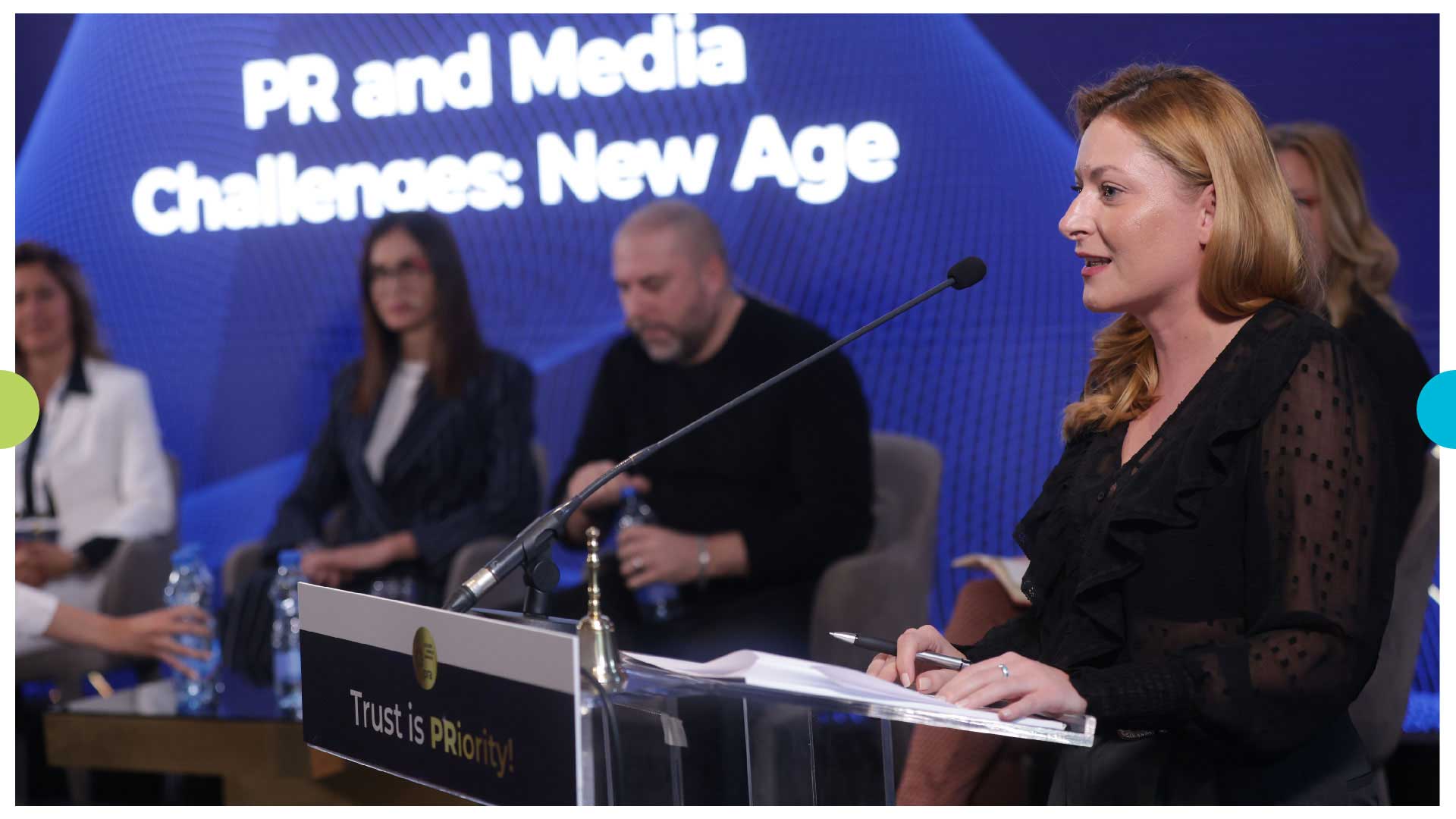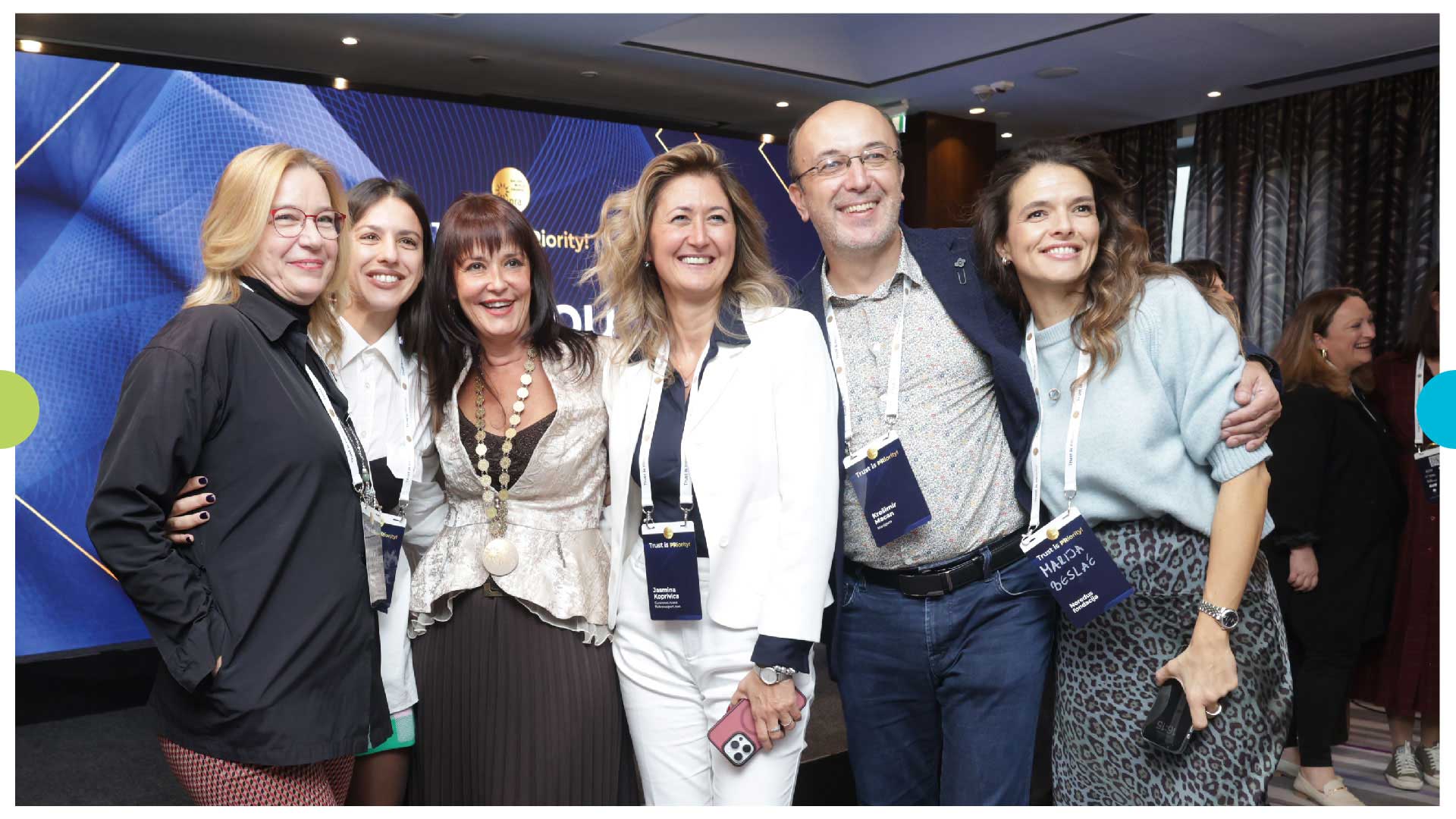Artificial intelligence (AI) is becoming increasingly present across various industries, and its application in public relations brings innovations that transform how communication with the audience is conducted. At this year’s PR Summit, held in Belgrade under the theme “Trust is Priority,” experts from the fields of communication and marketing gathered to discuss the impact of AI on PR, with a special focus on applying ethical standards in using AI in the communications industry.
From the outset, our Communications Director, Bojana Stanković, welcomed the attendees, noting that AI is no longer a novelty but something that has become a part of our daily lives, allowing us to begin summarizing our experiences. To illustrate how far we’ve come in using AI, she introduced our AI avatar, Nura, our virtual colleague who has already moderated several conferences in the Middle East, and asked her how she perceives adherence to ethical standards in her daily work.
Nura greeted the audience by explaining that nothing human is alien to her, as people created her and can access information provided to her. In other words, the level of ethics we instil in her is the level of ethics we will receive in return.
The opening address was by Nataša Pavlović Bujas, the IPRA President for 2024, who expressed her hope that this PR Summit in Belgrade would become an annual tradition, bringing together communication experts.
AI in PR: New Opportunities and Challenges
Professor Dejan Verčič, one of Europe’s leading public relations and communication experts, highlighted in his address the significance of artificial intelligence (AI) in the PR industry and the challenges it presents.
Verčič emphasized that AI could significantly enhance the PR industry but would struggle to replace human creativity, empathy, and strategic thinking. AI tools can assist in analyzing large amounts of data, automating routine tasks, and personalizing communication, but decisions that require ethical insight, creativity, and understanding of the social context remain in human hands.
He sees AI as providing new opportunities in terms of efficiency and innovation. For example, AI-based tools can quickly analyze the tone and sentiment of many social media or media posts, identify trends, and suggest communication strategies. This allows PR professionals to focus on deeper analysis and strategic planning.
Professor Verčič often emphasizes the importance of ethics and transparency in using AI in communication. According to him, PR professionals are responsible for being transparent about their use of AI tools and ensuring that these tools do not compromise user privacy or spread misinformation. Establishing clear ethical standards to regulate the use of AI technologies in public relations is necessary.
Will AI Deepen the Generation Gap in the PR Industry?
Sanja Milaković Kolundžija, a partner at “Executive Group” Serbia and moderator of this panel, discussed with her panellists (Gordana Turković, founder and CEO of “CTA Communications,” Croatia; Aleksandra Vuković, entrepreneur/director of “NURA* digital,” Serbia, and James McQueeny, IPRA Board Member and UN representative) whether AI could deepen the generation gap if older generations are not given the opportunity to learn and adapt to new technologies. Younger PR professionals who grew up in a digital environment naturally adapt to technologies that facilitate daily activities. However, this does not mean that older professionals cannot acquire new skills; on the contrary, the experience and strategic thinking they bring can be a significant advantage in combination with AI tools. The key lies in continuous education and readiness for change.
Given today’s complex communication environment, integrated approaches and strategies are more necessary than ever. Artificial intelligence can assist in data analysis, but true success lies in connecting various communication channels into a coherent whole.
For younger generations, TikTok is becoming the primary source of information, so, as stated on the panel, it will be interesting to see how we transition to developing PR videos to inform target audiences. Many PR professionals today struggle with maintaining message quality and relevance in a world where virality often outweighs content value.
Artificial intelligence is a powerful tool, but how we use it is crucial. It can facilitate and enhance many aspects of communication, but only if combined with authenticity, strategic thinking, and ethics. It is up to PR professionals to embrace AI as support and use it to create deeper, more relevant, and meaningful connections with their audiences.
PR and Media: What’s New in the New Age?
The rapid development of technology, especially artificial intelligence, brings an inevitable need to redefine responsibilities among various stakeholders—from PR professionals and media to technology companies and regulatory bodies. The question is who is responsible for placing information and shaping, distributing, and influencing it.
Discussing the situation in the media and collaboration with PR professionals, panel moderator Vanda Kučera, Corporate Affairs and Corporate Communication Director at McCann Belgrade, Serbia, engaged with panellists Krešimir Macan (Founder & CEO of “Manjgura,” Croatia), Jasmina Koprivica (Digital Operations Director at Euronews.rs and TVArenasport.com), Aleksandra Kosanović Strižak (Marketing and Communications Sector Director, Erste Bank a.d.), and Radiša Kričak (PR Manager at TWO RIVERS).
The issues facing the communications industry are not isolated. Mistrust in the media, the spread of misinformation, and data misuse concern all actors in the chain—from content creators and technology platforms to end users. Although each has its specific challenges, working on joint solutions that include transparency, education, and strengthening critical thinking is essential.
The role of PR professionals is to promote a specific brand and act as guardians of trust between the brand and its audience. Understanding the public interest means being aware of the responsibility that comes with placing information and shaping perceptions. In an era where information spreads quickly and mistrust grows, PR professionals must act with integrity, responsibility, and transparency.
Collaboration is Key to Advancing the Profession, Especially in Times of Great Challenges
Traditional divisions between PR and media may no longer suffice. It is necessary to redefine ways of working together to ensure accurate and reliable communication. This means working together to create frameworks that protect the public interest and allow technology to contribute to positive change. The role of ethical standards, codes of conduct, and mutual support has never been more important.
The media and PR professionals certainly have significant power as they shape public perceptions, attitudes, and behaviours. However, in the age of digital media, this power has evolved and perhaps become even more significant—thanks to the ability to rapidly deliver targeted messages and effectively adapt and personalize them for different audience segments. With great power comes great responsibility, and the role of PR and media is to recognize and manage this power in a way that serves the public interest.
The key change is that it is no longer enough to communicate—it is important to communicate responsibly, transparently, and respectfully toward all participants in the process. This requires a deeper understanding of technology, human nature, empathy, and constant adaptation to new norms and expectations.
Igor Jakšić, General Director and Editor-in-Chief of Avala Media Group closed the summit by noting that such gatherings for meaningful discussions are essential, something AI cannot replace.
The Future of PR with AI
Artificial intelligence is not just a passing trend in the PR industry but a key tool that can improve many aspects of communication. Although it is clear that AI will not replace human creativity and empathy, it can significantly improve the efficiency and precision of PR activities. PR Summit 2024 in Belgrade was the perfect opportunity to exchange experiences, knowledge, and ideas about the future of PR with AI.
Companies and brands that integrate AI into their PR strategies today can position themselves as leaders in innovation and communication. The future of public relations is exciting, and artificial intelligence is undoubtedly here to support it on the path to even better and more personalized communication. Of cou


